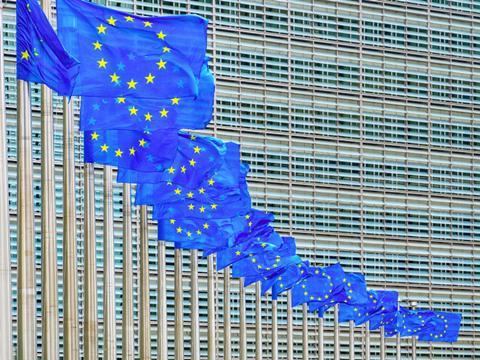
Today, the European Commission has announced the adoption of a new Strategic Framework for a Competitive and Sustainable EU Bioeconomy, seeking to build a ‘clean, competitive and resilient’ European economy by using renewable biological resources and providing alternatives to critical raw materials.
With this new strategy, the EU aims to support activities that provide ‘sustainable practical solutions’ using biological resources in sectors such as agriculture, forestry, fisheries, aquaculture, biomass processing, biomanufacturing and biotechnologies. Examples of products include bio-based chemicals made from algae used to produce pharmaceuticals, personal care products and industrial applications.
The Commission states that bio-based plastics are increasingly used in packaging and automotive parts, and bio-based construction productions, textile fibres and fertilisers are increasingly in demand. The Commission says it will work to create a ‘coherent and simplified’ regulatory framework that rewards circular and sustainable business models while safeguarding EU safety standards. It will also ensure that existing and future EU funding goes into bio-based technologies.
To stimulate private investment, the Commission proposes to convene a Bioeconomy Investment Deployment Group to create a pipeline of bankable projects, share risk more effectively, and crowd in private capital. To unlock investment and enable scale-up, the Commission has identified potential markets for bio-based materials and technologies including bio-based sectors such as plastics, fibres, textiles, chemicals, fertilisers, plant protection products, construction materials, biorefineries, advanced fermentation and permanent storage of biogenic carbon, which have high potential for economic growth and environmental benefits.
The Commission adds that it will boost demand for bio-based content in products, such as setting targets in relevant legislation. The Strategy proposes to set up a Bio-based Europe Alliance which will gather EU companies to collectively purchase bio-based solutions worth €10 billion by 2030. The Commission also plans to establish initiatives rewarding farmers and foresters who protect soils, enhance carbon sinks and support sustainable biomass use.
Last month, the Commission provided optional guidance to help Member States calculate Extended Producer Responsibility (EPR) costs under the Single-Use Plastics Directive. The document advises Member States on the interpretation and implementation of Article 8 under the Directive, covering the costs of cleaning up food and beverage containers, including cups, packets, and wrappers, and lightweight plastic carrier bags.
In related news, more than 110 organisations from across Europe’s plastics value chain united to deliver an Industry Statement to officials at the European Commission’s Directorate-General for Environment (DG-ENV), calling to ‘close the gap’ between virgin and recycled plastic prices. The statement urges policymakers to act swiftly to close the widening gap between virgin and recycled plastic prices - a gap the campaign claims is forcing recyclers out of business and threatening Europe’s circular economy ambitions.
If you liked this story, you might also enjoy:
The ultimate guide to the Packaging and Packaging Waste Regulation in 2025
How are the top brands progressing on packaging sustainability?
Everything you need to know about global packaging sustainability regulation in 2025
The key to increasing the use of reusable packaging in supermarkets













No comments yet